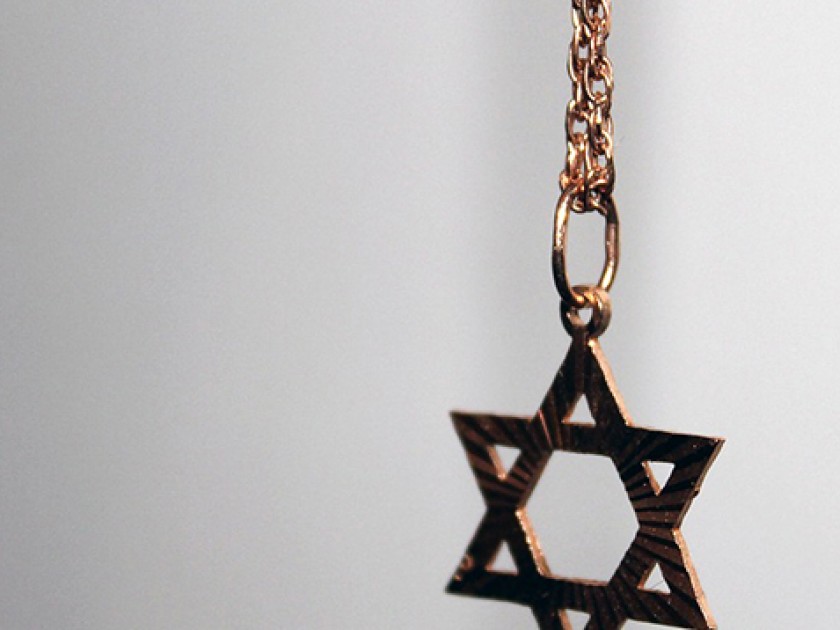
Piper Weiss is writing here as part of Jewish Book Council’s Visiting Scribe series.
When I was twelve, my father gave me a necklace — a pendant with a gold wafer, etched with a Jewish star. It was the perfect length for flipping between my teeth during English class, or sucking on during the Lord’s Prayer at school assemblies.
My parents chose the all-girls private school I attended for its academic rigor and reputation. The weekly prayers ritual was simply part of the school heritage. I wasn’t required to recite the bible verses or sing the hymns; at times, though, I wanted to. A chorus of 600 girls chanting in unison was seductive. It didn’t matter what they were saying — what they were saying, to me, was that they belonged.
My father instructed me to not say the prayers. I sucked on my star in salivary resistance. The condition of being apart from the group, it seemed, was my own heritage. We were chosen, my father would trump, as if we were on a winning team. We were persecuted, I had read in my Hebrew school textbook, which made winning all the more triumphant. We were resilient, I had learned over Passover dinner and on a trip to the Jewish Museum, and in documentaries my father and I watched together — and that resistance is what kept us alive. Resistance was how I existed.
So, at age twelve, my star necklace became a symbol of team spirit — not unlike a Boston native might wear a Red Sox hat — as a stake in my own inherited identity.
“I wouldn’t wear that to school every day,” my mother said one day, pointing to the necklace. It wasn’t the right place for that, she explained, and I understood enough to remove it and return it to the box in which my father had presented it. That was no longer my team, but a symbol of straddling between two ideas: Be proud, be quiet. It was a reminder that I didn’t know where I belonged.
My parents were graduates of Forest Hills High School in Queens, where the student body in the late ‘50s was largely Jewish. But as children of immigrants, they were treated as outsiders by the world beyond their community. My father was regularly threatened because of his background (his college roommate asked to see his horns), which only emboldened his Jewish pride. My mother, no less proud, had a different reaction to anti-Semitic sentiment. She was raised to iron her hair smooth, to downplay her nose, to follow the aesthetic expectations of a culture she was expected to assimilate to rather than shape.
Together, they moved to Manhattan’s Upper East Side — a world away from their Queens upbringing — where they joined the geographical ranks of those wealthy country club members who once shunned their kind.
But belonging to such a community they didn’t inherit came with unspoken caveats. Perhaps my mother worried that it could all be taken away. Perhaps she associated wearing the Jewish star with such a risk as it had been for her own parents. Perhaps she didn’t know that in reclaiming the symbol, the reverse might be true. I didn’t know either. I just missed the simplicity of belonging to a team — the reminder of who I was or wasn’t in times of doubt.
In place of the star, I was given a Tiffany necklace, the one all the girls wore at school. The pendant was a hollow silver lima bean. When I sucked on it during prayers, it flattened out into a misshapen thing with teeth marks.
Piper Weiss is the author of You All Grow Up and Leave Me: A Memoir of Teenage Obsession published April 10 by William Morrow.